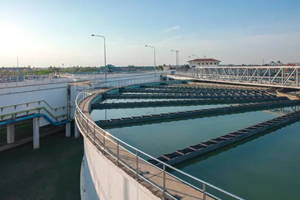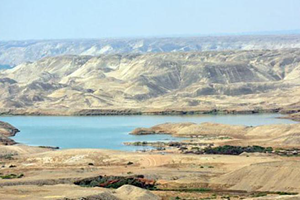Water demand & supply
Kuwait's water consumption is among the highest in the world with per capita consumption averaging 447 liters every day. The groundwater withdrawal rate is 255 million m3 per year, 12 times its annual groundwater inflow. Of total water withdrawn annually, 54% is used for agriculture, 44% for municipal purposes and 2% for industrial purposes. High rates of withdrawal are leading to increased salinity in the existing water supply. Desalination plants are the primary source of freshwater for drinking and domestic purposes in Kuwait, providing 92% of water for domestic and industrial needs and 60 per cent of total water supply. There is no charge for the use of groundwater supplies; this leads to wasteful practices in agriculture and misuse of high-quality water.


Strategies for water security
Desalinated water
Kuwait operates seven desalination plants with a total maximum daily production capacity of 2.432 million m3. Desalination alone will not meet the demands of Kuwait's growing population. Kuwait faces the real threat of being unable to afford the expense of desalinated water without a strong diversified economy. Although it is currently feasible to produce desalinated water in the short- to medium-term, a more cost-effective and less energy-intensive solution will be necessary for the long-term. Kuwait has immense solar power potential, estimated at 389 MW per day. Fossil fuel powered desalination processes can be replaced by renewable solar technology. The construction of a major solar powered desalination plant in Kuwait is estimated to cost approximately USD2.5 billion, with an expected payback period of eight to ten years. Investment in solar powered desalination could reduce emissions in Kuwait by 0.36 million tons and save 0.963 million barrels of oil annually, making it both cost-effective and an environmentally sustainable solution that is able to bypass the risks of volatile fuel prices and depleting hydrocarbon stores.














